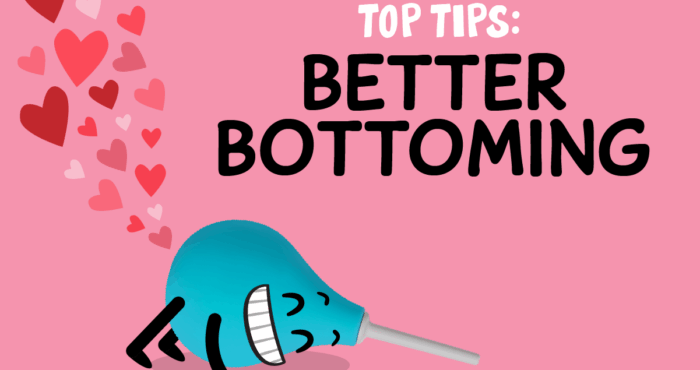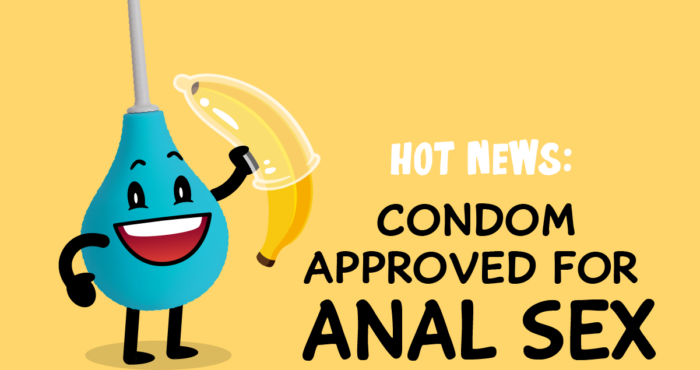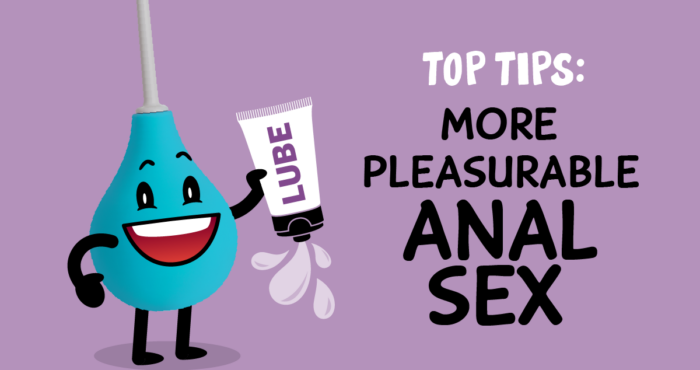My experience with anal warts
I’m a gay man on PrEP. I love bottoming, and am not using condoms for anal sex. And I have anal warts. Here’s my story.
For a bit of context: I come from California and live in Berlin, Germany. I am a gay man in my mid-30s, love to bottom, and have been taking PrEP for the last two years. While I don’t use condoms for anal sex, I get tested every three months and am very proactive in managing my risk for HIV and STIs.
Needless to say, when I first learned I had anal warts, I was worried but didn’t think that I’d be treating them for over a year. Over that time, I’ve learned a lot about HPV, gained clarity around transmission and treatment, advocated for better treatment, and figured out how to talk about anal warts with sex partners. I hope that sharing my story, and what I’ve learned, is helpful to other people who experience anal warts.
About my warts, and treatment
Before having anal sex I love to take time to prepare. This includes douching very gently and fingering myself to pre-lube. One day I could feel a certain texture within my ass, which felt different than the rest of the soft tissue inside. This is when I became worried that I might have a wart, and so I made an appointment to see my doctor.
The warts were small and located on the anus (exterior) and in the anal canal (the interior area between the anus and the rectum). About a month later I would undergo laser surgery procedure, and two months later, warts returned. At that time I decided to switch to a new proctologist who began doing very small treatments, once per month, with a combination of acid and freezing. I was also prescribed a special cream (designed to boost the immune response to the area applied) which I apply twice per week on the anus and inside the anal canal area.
My progress to date: two small wart areas have reduced to one, which continues to reduce in size with each treatment.
Talking to others
Talking about topics related to sexual health is often uncomfortable. I’ve found that it’s been very important to find the right people to discuss my experiences (whether in person or online!)
I am grateful to have circles of friends who are both interested and informed in sexual health and never respond with judgement. I also found ways to chat with people via gay dating apps as well about this subject.
The greatest source of anxiety was around having to undergo a surgical procedure and a period of recovery afterwards. Many people I started talking to were very understanding and shared their experience with their own surgeries. I also soon discovered that many other people have dealt with some form of genital warts in their life. The greatest emotional relief came from people who replied with “I’ve had this too,” and began to share their experiences related to how their warts were discovered and treated.
These types of exchanges have helped me to shed any shame I was feeling and reinforced feelings of forgiveness. I am empowered knowing that I am doing all I can do to take care of this and myself along the way.
Find a doctor or proctologist who gives you information and options
As I think back to my first diagnosis and examination by a proctologist, I remember it being difficult to communicate with him. My hope was to learn more about the formation of warts, more about HPV, and what options for treatment might be available. Instead, when I asked questions about HPV he had vague answers and said laser surgery was the only option. This triggered a flood of emotional anxiety for me: I needed to have surgery, with general anesthesia, and have a long recovery process (2 weeks off of work), with a detailed care regimen. All of this was too much.
Two months after the laser surgery, this proctologist confirmed that there was new growth of the warts and recommended a second laser surgery. I knew that having a recurrence is very common, but given the stress of the first surgery, I did not want to do it again unless absolutely necessary. I knew that other options existed for treatment of genital warts. I talked to my primary care doctor and asked for a new referral.
Upon my first meeting with a new proctologist, I instantly felt a certain openness and comfort in our conversation. After a new examination, and after saying how anxious I was about a second laser surgery, he suggested we try a cream called imiquimod. Applying this cream over several weeks (or a longer period of time if prescribed) helps the body’s immune system reduce or eliminate the warts on its own. The cream works about 50% of the time, he explained.
One month later, on my second visit, he noticed there was no new growth, but also no reduction in size. This was still good news. Now he suggested to start a series of treatments where the warts are treated with acid and freezing in a “light” and ongoing way (compared to a single intense treatment such as laser), along with the imiquimod cream.
My visits with this new proctologist continue to be productive and communicative. I’ve learned that although different methods of treating genital warts have different rates of effectiveness, wart recurrence is very common no matter what method is used. Genital warts can be rather stubborn and require multiple treatments.
I asked him whether I should stop having anal sex, in hopes that would prevent the further growth of the warts and prevent transmission. His response was both neutral yet still sex positive. Although some people do choose to stop having anal sex, there is no guarantee that this will prevent new warts from forming. And, sexually active people are still often carriers of HPV and can still easily transmit HPV even in the absence of warts.
Continue to evolve your own safer sex practices
One of the many ways I practice safer sex is to ask my sex partners, as often as possible, about sexual history. Over the years I’ve found ways to talk about taking PrEP, choosing not to use condoms, and also what it was like to have had gonorrhea, chlamydia, and herpes. Now I include genital warts in the discussion.
When I tell people about having anal warts, I’ve received a range of responses. I’ve been pleasantly surprised with how many people say they are already familiar with HPV and understand how easy it is to transmit. I’ve also heard from people who are uncomfortable or unsure about risks of genital warts and decide they do not want to have sex. I always accept their decision. Above all, I’ve found that being proactive and bringing up these topics helps both myself and other people practice how to talk about sexual health.
A common reaction to the topic of genital warts is “well, you should have used condoms” or “we have to use condoms then.” It’s important to know that condoms are effective at preventing STI transmission in certain circumstances. HPV can also be transmitted during contact other than anal sex – such as kissing, fingering, and oral sex – when condoms are not used.
I also want to offer a special tip for everyone who loves to bottom: Take some time to finger yourself and feel the inside of your ass. This puts you in touch with the sensations and textures of this region of our body. Over time, if you begin to feel any textures that feel foreign, see your doctor to have it checked out. Detecting anal warts early will mean the treatment process can be more focused and effective.
When I first learned I had anal warts I was optimistic they could be treated once and be gone, but it hasn’t turned out that way. Through everything I have learned I am better able to accept the situation, and it no longer is a cause of anxiety.
—
The opinions expressed in this article are those of the author alone. They do not reflect the opinions or positions of BETA or of San Francisco AIDS Foundation.









